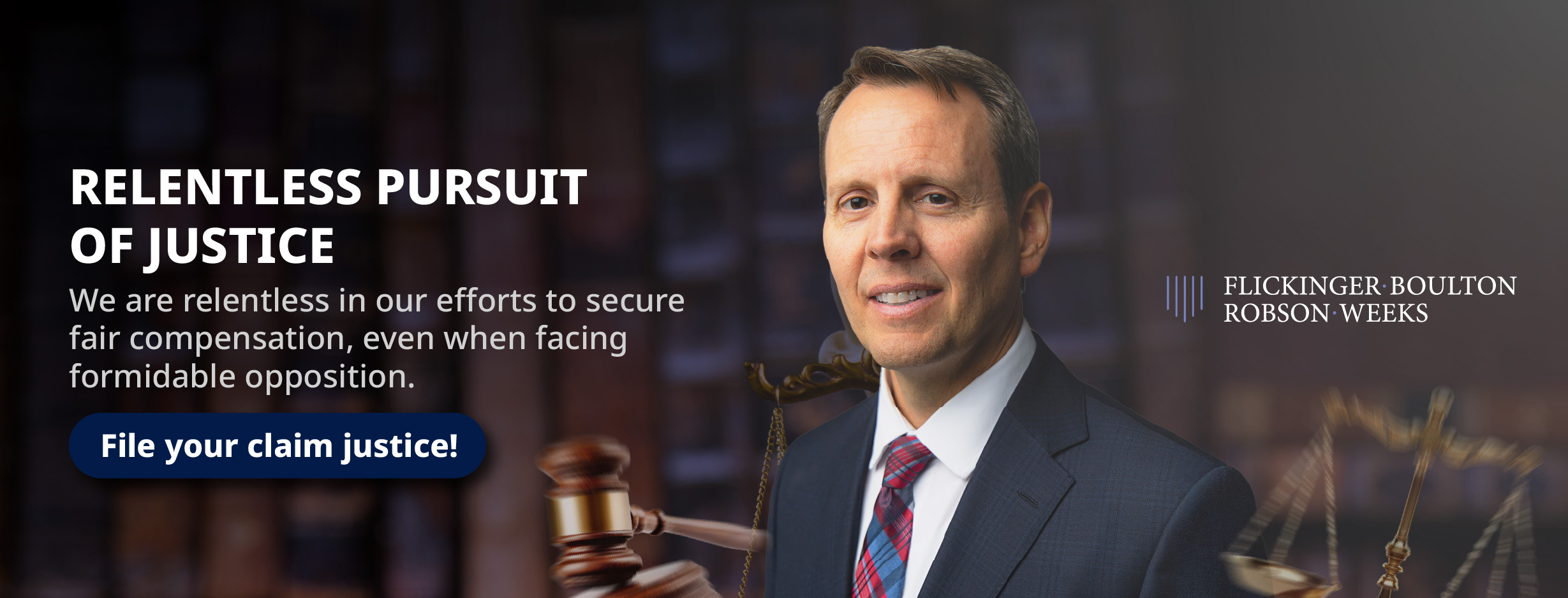Motorcyclists face unique risks on the road, and one of the most significant dangers comes from hazardous road conditions. Unlike passenger vehicles, motorcycles have less stability and are more susceptible to losing control due to potholes, uneven pavement, debris, or poor weather conditions.
In Salt Lake City, where road surfaces can be affected by seasonal changes, construction projects, and municipal maintenance issues, these hazards can quickly lead to serious accidents. Understanding how road conditions contribute to motorcycle crashes is crucial for determining liability and securing compensation for injured riders.
At Flickinger Boulton Robson Weeks, we are committed to helping motorcyclists who have been injured due to poorly maintained roads or other hazardous conditions. Whether a city or state agency failed to maintain safe roadways or a private contractor left dangerous debris in a construction zone, we work to hold the responsible parties accountable.
If you or a loved one has suffered injuries in a motorcycle accident due to unsafe road conditions, our experienced legal team is here to help.
Poor road maintenance is a significant factor in motorcycle accidents, often leading to serious injuries or fatalities. Unlike cars, motorcycles rely on two wheels for balance, making them more vulnerable to uneven surfaces and road hazards. When government agencies or private contractors fail to maintain roads properly, dangerous conditions can develop, putting motorcyclists at risk.
Poor road maintenance is a serious hazard for motorcyclists, often leading to accidents that could have been prevented with proper upkeep. Unlike cars, motorcycles have less stability and traction, making riders especially vulnerable to road defects.
When roads are not properly maintained, even minor hazards can cause a motorcyclist to lose control, resulting in devastating crashes.
Dangerous road conditions that affect motorcyclists in Salt Lake City include:
When roads are not properly maintained, motorcyclists face significant dangers. Riders who suffer injuries due to poor road conditions may have legal options to seek compensation for their damages. Holding responsible parties accountable is crucial to ensuring safer roadways for all motorcyclists.

Motorcyclists injured due to poor road maintenance may be entitled to compensation for medical bills, lost wages, pain and suffering, and motorcycle repairs. However, filing a claim against a government entity often involves strict deadlines and procedural requirements.
An experienced Salt Lake City motorcycle accident lawyer can help investigate the accident, gather evidence, and build a strong case to pursue the compensation you deserve. If poor road maintenance caused your crash, legal action may be necessary to hold negligent parties accountable.
When hazardous road conditions contribute to a motorcycle accident, determining liability can be complex. Unlike accidents caused by negligent drivers, crashes resulting from poor road maintenance or design often involve government entities, contractors, and other third parties.
Identifying the responsible party is essential for pursuing compensation, but it requires a thorough investigation into who was in charge of road upkeep, repairs, and safety measures.
Identifying the responsible party requires evidence that demonstrates negligence. This may include accident scene photos, witness statements, maintenance records, and expert testimony. A legal claim must also establish that the responsible party knew, or should have known, about the hazardous condition but failed to address it.
Because claims against government entities have strict deadlines and legal requirements, it is critical to take action quickly. A skilled attorney can help motorcyclists navigate these claims, ensuring the proper procedures are followed and that all liable parties are held accountable.
Seeking compensation for injuries caused by hazardous road conditions is not only about financial recovery but also about pushing for safer roads that protect all riders.
Gathering strong evidence is essential when proving that road defects or negligence contributed to a motorcycle accident.
Unlike accidents caused by driver error, cases involving poor road conditions require demonstrating that a hazardous defect existed and that a responsible party failed to address it. Proper documentation and expert analysis can make a significant difference in establishing liability and securing compensation.

Motorcyclists involved in accidents caused by road defects should gather as much evidence as possible from the scene. Critical pieces of evidence include:
In addition to gathering on-site evidence, obtaining official records and expert analysis can further strengthen a case.
Proving that a government agency or contractor was negligent in maintaining a roadway can be difficult. Many municipalities have legal protections that limit their liability unless clear evidence of negligence exists. Additionally, claims against government entities often have strict filing deadlines, requiring quick legal action.
An experienced motorcycle accident attorney can help victims navigate these challenges by securing the necessary evidence, filing claims within the legal timeframe, and holding the responsible parties accountable.
By building a strong case, injured riders can not only seek fair compensation but also help push for safer road conditions that protect all motorcyclists.
Legal precedents play a critical role in motorcycle accident cases involving hazardous road conditions. Courts have established various rulings that shape how liability is determined when road defects contribute to crashes.
These cases help define the responsibilities of government agencies, private contractors, and other parties responsible for road maintenance. Understanding past legal decisions can provide insight into how similar claims may be handled today.
One of the most significant challenges in road condition-related cases is proving that a government entity failed in its duty to maintain safe roads. Legal precedents have established that municipalities and state agencies can be held liable under certain conditions, such as:

In many cases, government agencies outsource road maintenance and construction work to private contractors. Courts have found that these contractors can be held accountable for negligence if their work directly contributes to hazardous road conditions.
Legal precedents have set clear guidelines in situations involving:
Over the years, courts have ruled on several influential cases that have shaped how road hazard claims are handled. Some important legal precedents include:
Because legal precedents continue to evolve, having an experienced attorney is crucial for handling road condition-related accident claims. An attorney can examine prior rulings, gather the necessary evidence, and build a case based on established legal principles.
By leveraging these precedents, injured motorcyclists can improve their chances of holding the responsible parties accountable and securing the compensation they deserve.
If you or a loved one has been injured in a motorcycle accident due to hazardous road conditions, the legal team at Flickinger Boulton Robson Weeks is ready to fight for your rights. Our Salt Lake City motorcycle accident lawyers understand the unique challenges motorcyclists face and are committed to holding negligent parties accountable. With our experience and dedication, we can help you navigate the legal process and pursue the compensation you deserve.
Don’t wait to take action! Call Flickinger Boulton Robson Weeks today at (801) 500-4000 to schedule your free consultation. Let us stand by your side and work toward the justice and financial recovery you need.
Bicycle Accidents
Motorcycle Accidents
Boating Accidents
Recreational Vehicle Accidents
Bus and Mass Transit Accidents
Pedestrian Accidents
Automobile Accidents
ATV or UTV Rollovers
Commercial Vehicle Accidents
Semi Truck and Trailer Accidents
UTAH INJURY LAWYERS
Flickinger • Boulton
• Robson • Weeks
PROVO OFFICE
3000 N University Ave
Suite 300
Provo, UT 84604
SOUTH JORDAN OFFICE
10393 S. Temple Dr.
Suite 103
South Jordan, Utah 84095
OFFICE HOURS
Monday- Friday: 8AM-5PM
Saturday-Sunday: Closed
*Disclaimer: the information provided by this website is for informational purposes only and should not be considered legal advice or a substitute for competent legal counsel.
**SMS consent and contact phone numbers will not be shared or sold to third parties or their affiliates for any purpose.
© 2025 All Rights Reserved.